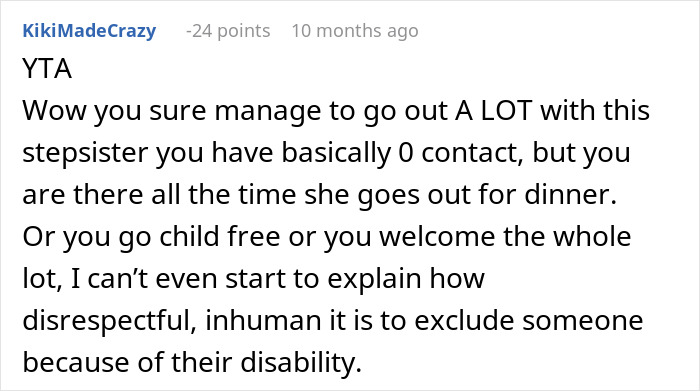Children at weddings have been quite a hot topic in recent years. Some people believe child-free weddings are the best way to go. Others think that’s discriminating against children. And some people think that wedding guests who are parents should be allowed to enjoy weddings with their little ones.
This bride-to-be faced a dilemma about her step-sister-in-law’s children. She worried that the wedding might turn sour because the eldest was on the spectrum and was generally “unruly” when with his little sister at other functions. So, she asked the Internet’s opinion: would she be the bad guy for excluding only the SIL’s kids from her wedding?
Choosing to have a child-free wedding is becoming more and more popular

Image credits: Sonyachny / Envato (not the actual photo)
But that usually applies to the children of all guests, not one specific mother
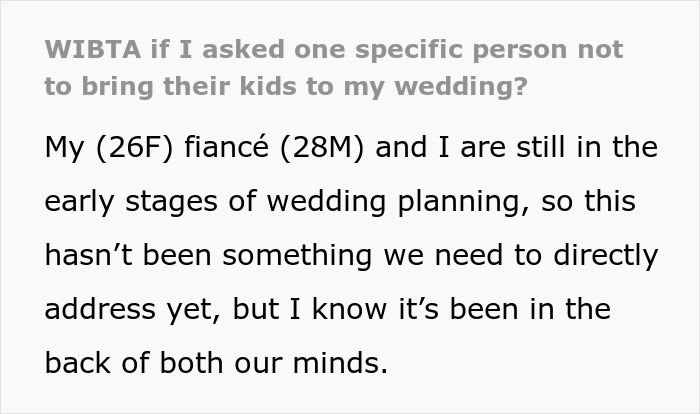
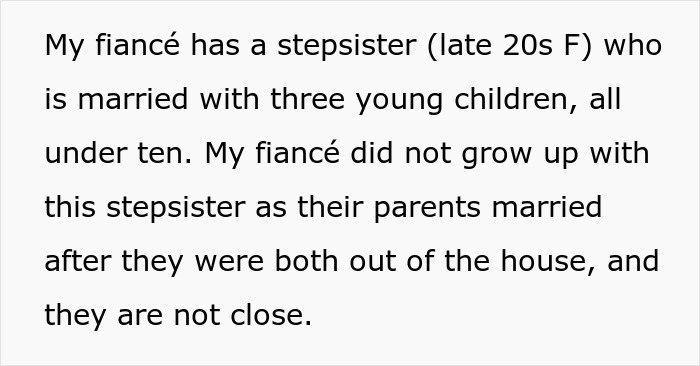

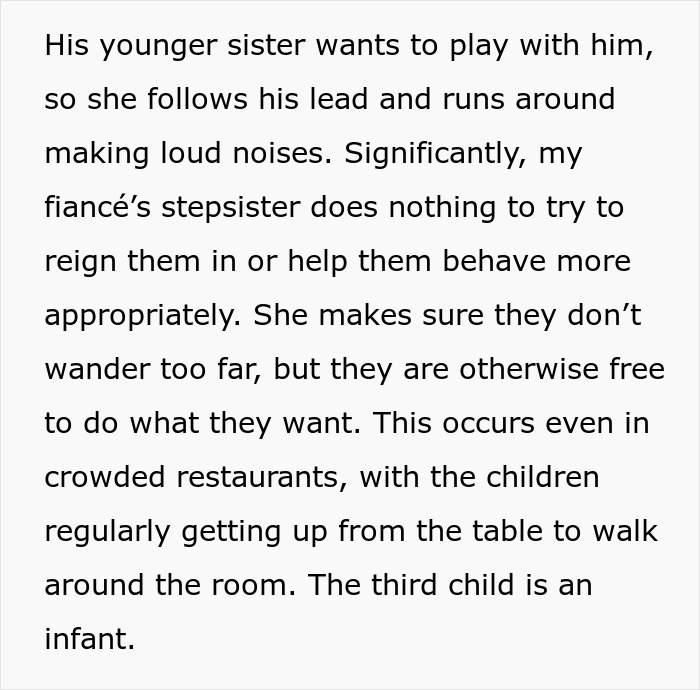
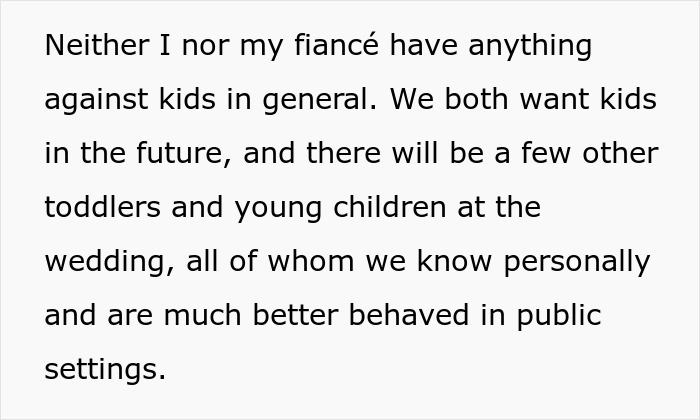
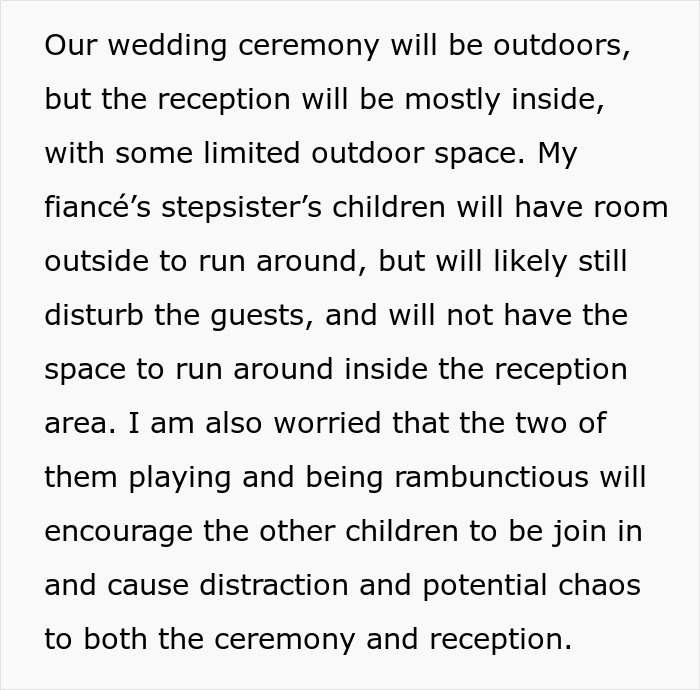

Image credits: Pressmaster / Envato (not the actual photo)

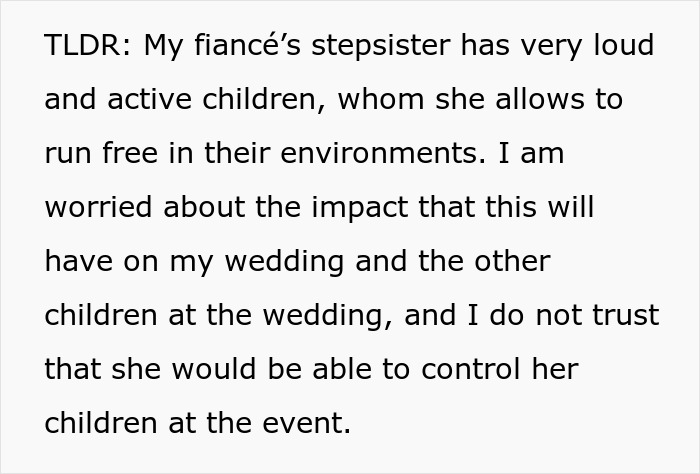
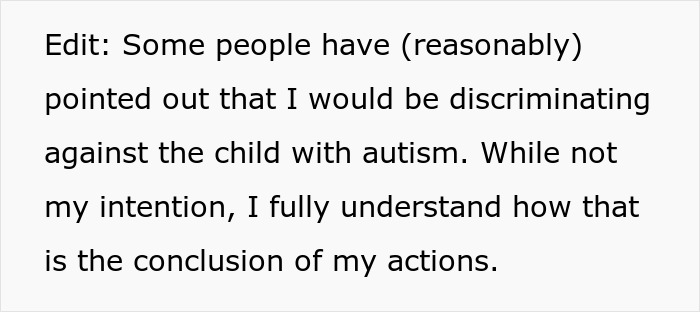
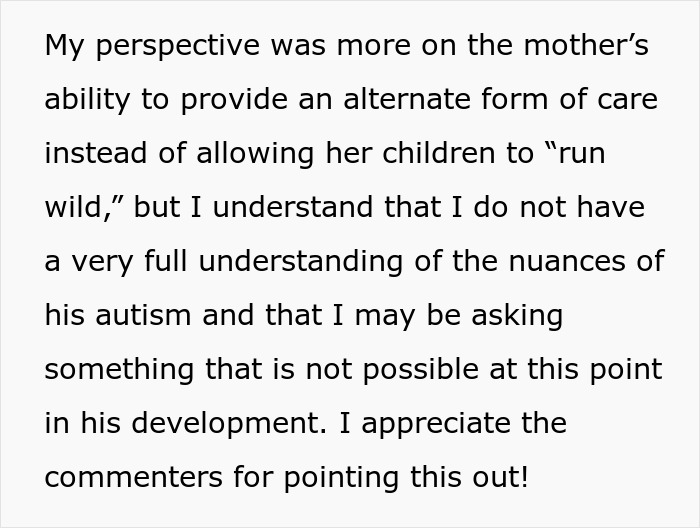
Image credits: curlystephi
Those who choose to exclude children from weddings aren’t child haters; they might have solid reasons

Image credits: Ben Waardenburg / Unsplash (not the actual photo)
For some, a wedding without children might sound strange. After all, a wedding is a celebration of family; it’s all about unity and continuity. And children are arguably the most loved and adored members of any family.
Usually, there are three options when it comes to whether to include children in a wedding. The first is an all-inclusive approach: people of all ages are welcome. The second is a wedding with no children whatsoever. And the third falls somewhere in the middle: there might be some kids and babies, but they’re either members of the immediate family or the bride and groom have agreed on their attendance.
Wisconsin-based wedding planner Meredith Bartel told Glamour that, usually, it’s young people who choose the no-children route. “We’re not relying on our parents to pay for weddings the way we were a couple decades ago. People are making their own choices instead of having their parents plan their weddings.”
Money is also often a big factor. Because the bride and groom are paying for the celebration themselves, they might not be able to afford an all-out bash. Those who plan the entertainment for the kids, such as a kid’s room, a bouncy castle, or a babysitter, do it out of the wedding budget. Planning a child-free wedding leaves more budget for what might be the bride and groom’s priorities: the dress, more guests, or an extra drink for all.
Then some think that a wedding is not an event for children. Dallas-based wedding planner Sarah Wintersteen says that “nobody wants to start dropping it low on a dance floor next to a four-year-old.” Wedding photographer Ross Hurley writes that child-free weddings are easier to photograph. “The images look a lot more elegant, relaxed, and classy. Sometimes, trying to photograph a nice bridal shot with 3 children crying at her feet can be a little tough.”
Looking at the issue from the parents’ perspective

Image credits: Juliane Liebermann / Unsplash (not the actual photo)
The people who are all for child-free weddings are almost always young adults in their 20s who haven’t had children of their own. So it might be hard for them to understand why their friends, who are parents already, might take a request not to bring their children as an insult.
Karen Pinchin wrote for Today’s Parent that she used to hate children at weddings. But then she had a kid herself. Prohibiting parents from bringing their children, according to her, is insulting to the parents, not because they might think you don’t like their children, but because you don’t trust their judgment and parenting skills.
“If you love and trust the people you’re inviting to your wedding, then love and trust that they will make the best decision for you on your big day,” Pinchin wrote. “By explicitly saying “adults only” or “no kids,” these invitations are dictating terms, taking guests’ best judgment out of the matter entirely.”
Whatever the final decision is, most wedding planners agree that the bottom line is this: this is the wedding of the bride and groom, and they make the decisions about what kind of wedding they want.
Bartel also told Glamour: “Sometimes, people project their own vision of the celebration onto the couple, but frankly, it’s about what the couple wants. You have to set your boundaries and be real clear, and you can’t please everyone. At the end of the day, it has to be the wedding that you want, not [the one] that your Aunt Judy wants.”
People really put their heads together and offered the bride possible solutions
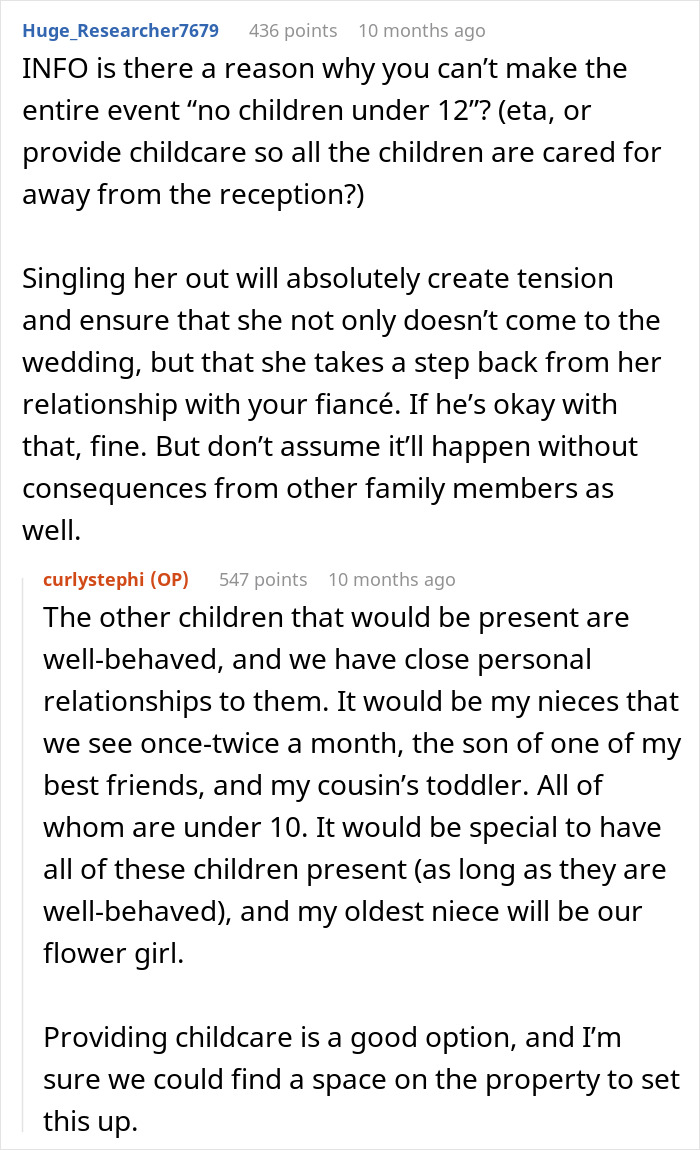
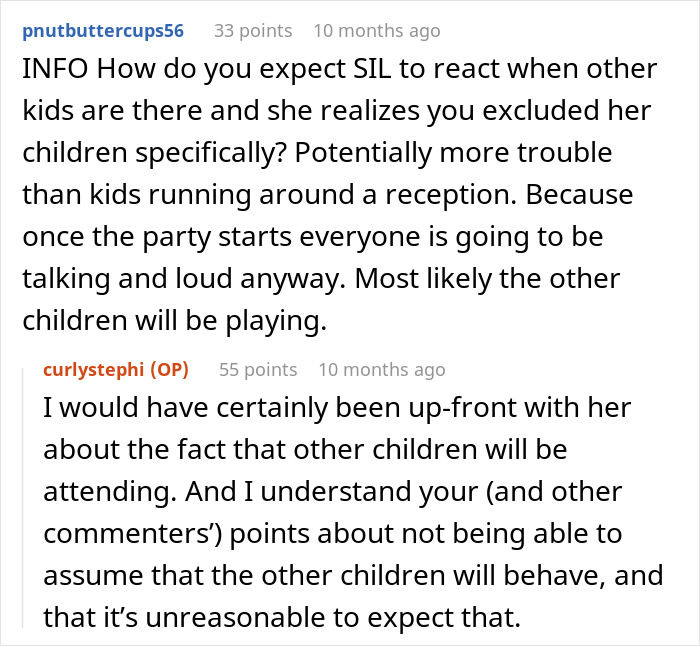
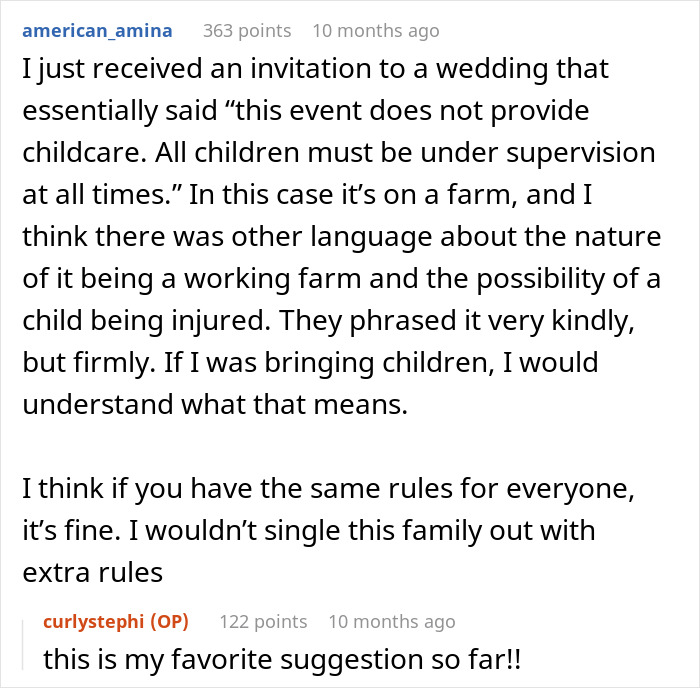
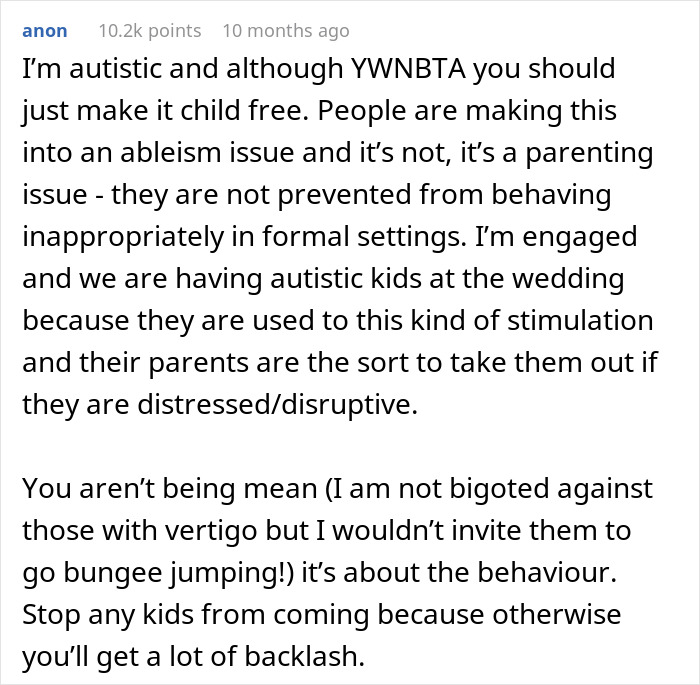
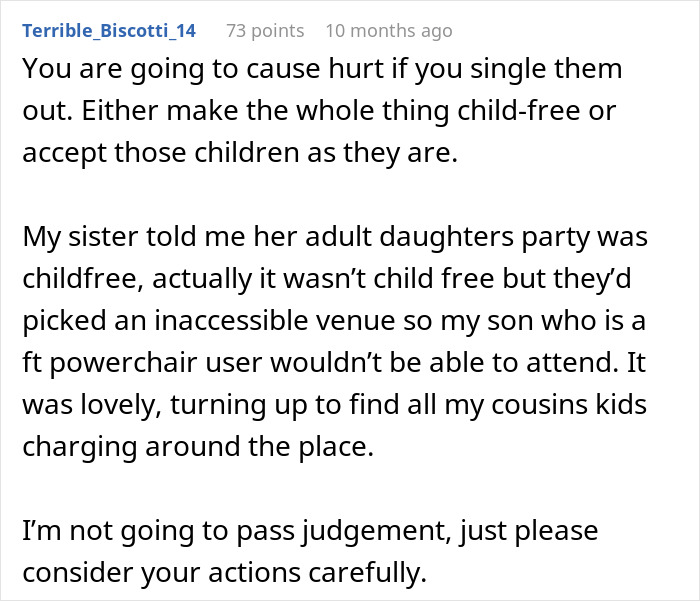
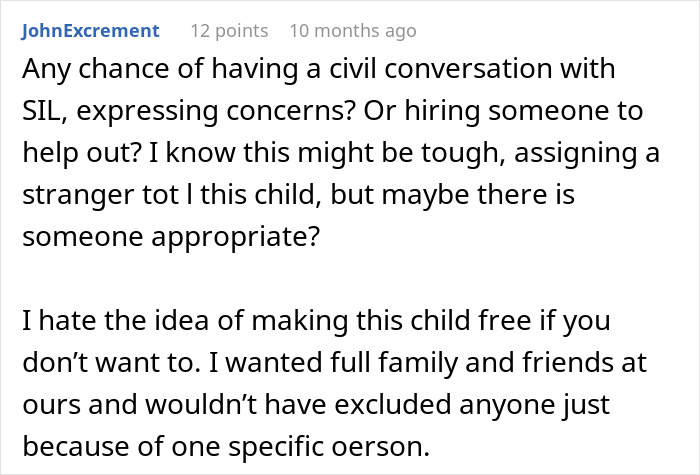
The majority of people said the bride wouldn’t be the bad guy
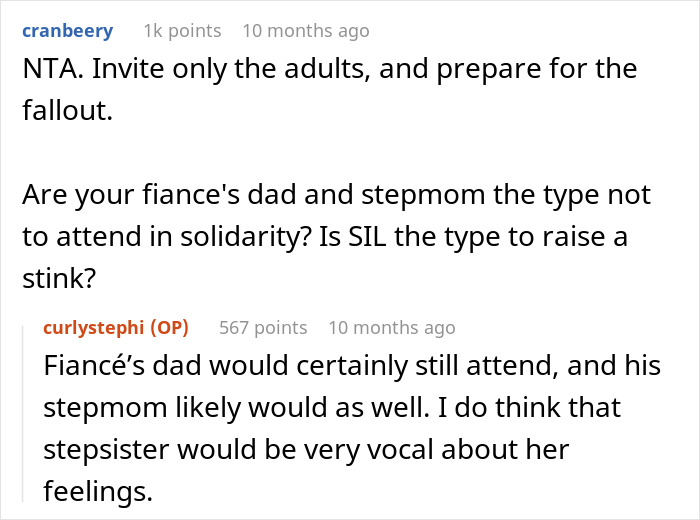
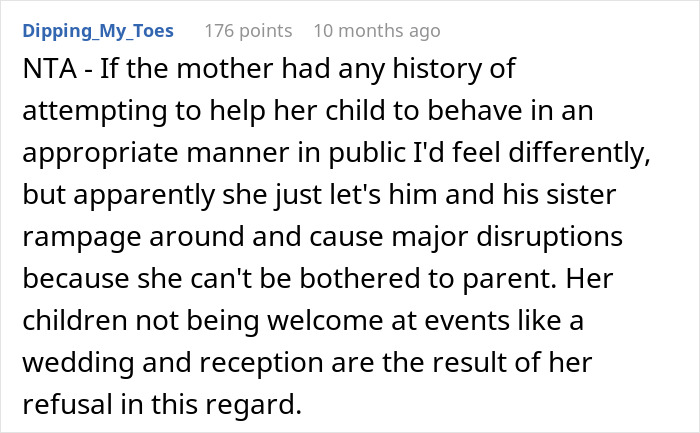



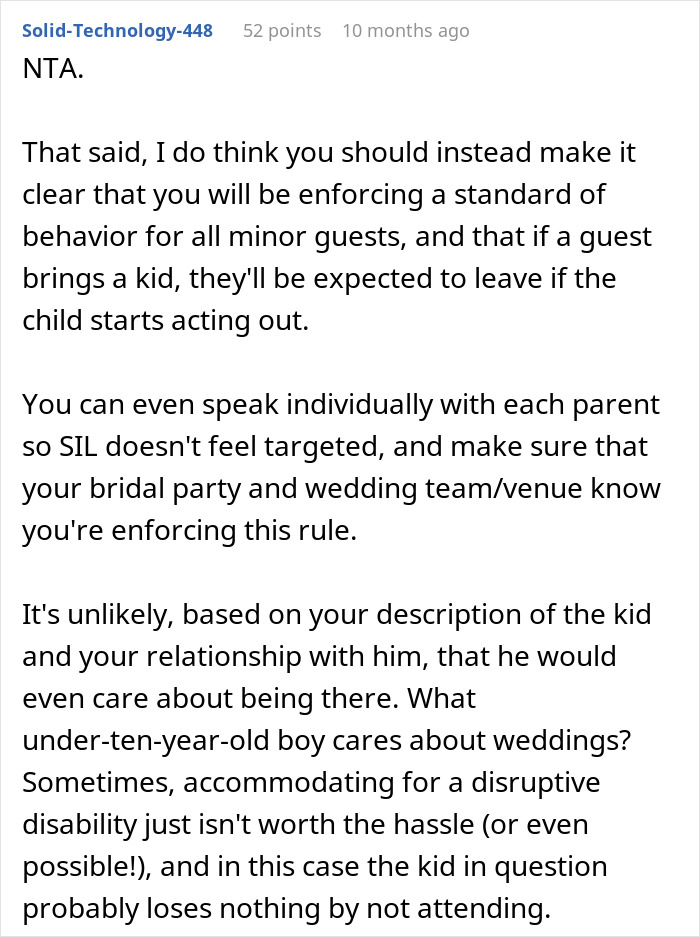
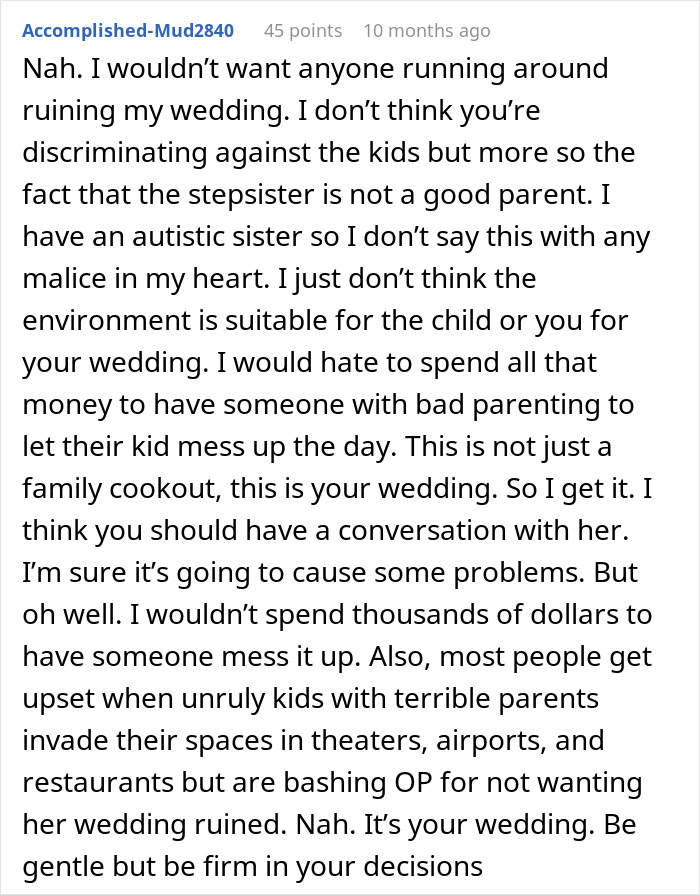
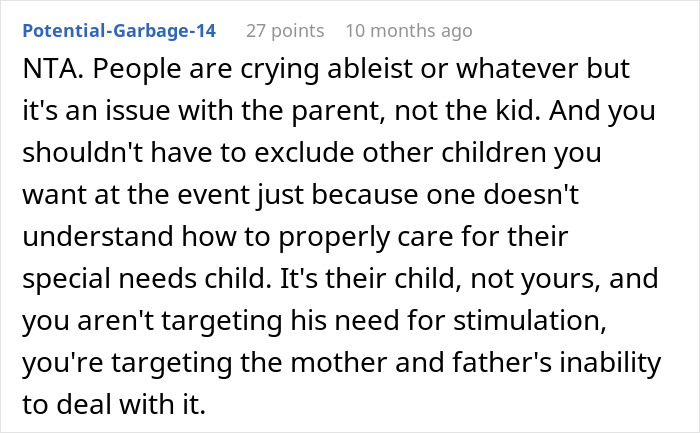
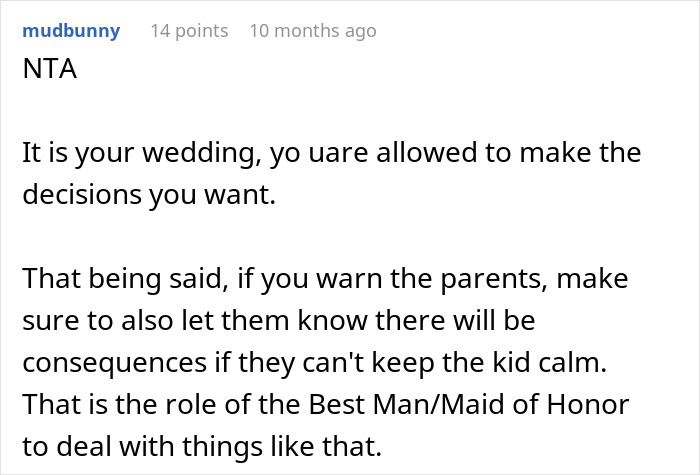
But others pointed out why her decision would be disrespectful



